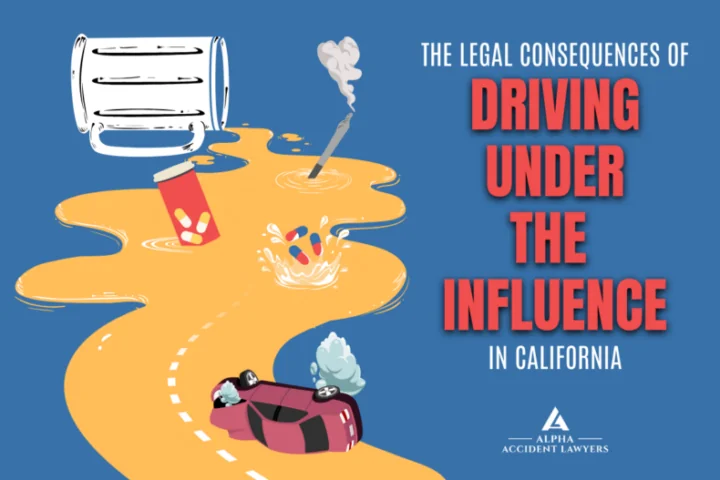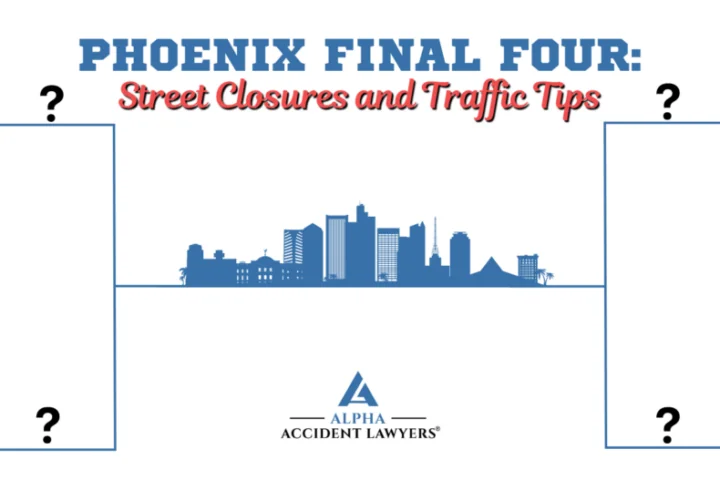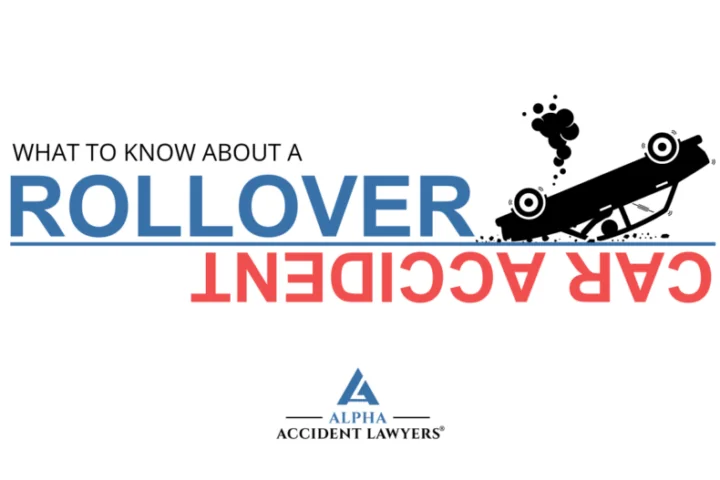The Legal Implications of a Car Accident
According to the latest data from the US Department of Transportation, auto accident deaths hit a 16-year high in 2021. Nearly 43,000 people died in car crashes, up 10.5% from the previous year. Car accidents are unfortunately common. If you were recently involved in an accident, you might be wondering about the legal implications of a car accident. For example, who is at fault for the accident, and what does that fault mean in terms of liability for personal injury and/or property damage? At Alpha Accident Lawyers, we help our clients understand the legal implications of car accident law.
Keep reading for everything you need to know about car accident laws, personal injury, and how to get in touch with us to represent your case.
Fault vs. Liability vs. Negligence: What Is the Difference?
Before we dive into the details of auto accident laws, it is important to define some terms. Fault, liability, and negligence are three legal terms that come up a lot when talking about car wrecks. But what do these words mean?
“Fault” means which party is to blame for the accident. The at-fault party may carry some legal responsibilities (e.g., payments for the other party’s injuries) depending on the state where the accident occurs.
In the legal world, “negligence” determines legal fault. In other words, a party acting with negligence that causes a car accident and injury to the other party would have legal fault for the accident.
“Liability” refers to one’s legal responsibility. A person found liable in a car accident that caused someone else’s injuries was at-fault due to their own negligence. And that liability means they can be held legally responsible for the results of that accident (i.e., the other person’s injury).
Who Is At Fault for the Accident?
Now that you understand the above important terms, you may be wondering: how do courts determine who was at fault, and therefore liable, for an auto injury? As we mentioned, courts use negligence to determine legal fault.
To prove negligence, an attorney must argue that the following elements were present:
- Duty
- Breach of Duty
- Causation
- Damages
Duty refers to the defendant’s responsibility to follow road signs and driving regulations. Breach of Duty refers to the defendant’s intentional or unintentional failure to fulfill that duty.
Causation is another word for fault. It means that the defendant’s Breach of Duty caused the accident that ultimately led to your personal injuries.
Damages refer to the harm or injury that occurred to you, the plaintiff, due to the defendant’s Breach of Duty. You must also prove that you incurred measurable losses to file damages.
Comparative Fault
Comparative fault refers to situations where two people are at fault for an accident. In many states, a person’s ability to recover personal injury damages depends on his or her share of comparative fault in the accident.
The three most common types of comparative fault are:
- Pure Contributory Negligence
- Pure Comparative Fault
- Modified Comparative Fault
States like Alabama and Maryland enforce pure contributory negligence rules. In these states, if the injured party was even 1% responsible for the accident, he or she can not sue for damages.
Pure comparative fault is the law in thirteen states, including Arizona, California, Florida, and New York. This rule allows injured parties to sue for damages as long as their share of fault is 99% or less.
Under pure comparative fault rules, however, the judge will reduce the plaintiff’s (the person filing the suit) award based on their percentage of fault. This means a party found 50% at fault who wins $1,000 in damages would actually only receive $500.
Modified Comparative Fault: Explained
The majority of US states recognize modified comparative fault rules. Not all 33 states have the same modified comparative fault rules, though.
For example, in states like Colorado and Georgia, the injured party can file a lawsuit as long as they are less than 50% responsible for the accident. As with pure comparative fault, the ultimate award will decrease by the at-fault percentage. Personal injury lawyers call this the 50% Bar Rule.
The remaining 21 states, including Illinois, Indiana, Ohio, Texas, and Wisconsin, follow the 51% Bar Rule. This rule allows injured parties to recover damages as long as they are less than 51% at fault for the accident.
Again, the ultimate amount recovered would decrease by the percentage that the injured party was at fault.
What Type of Law Covers Auto Accident Injuries?
The main type of lawsuit arising from car accident injuries falls under personal injury or tort law. Personal injury laws in the US protect victims of accidents, allowing them to sue and get compensated for their medical expenses.
A personal injury attorney can help you sue the other party. And if you win, you can collect the following types of damages:
- Economic Damages: These damages help repay you for medical bills and lost income
- Non-economic Damages: These damages help you recover compensation for pain and suffering, permanent injury or disability, and even mental or emotional pain and suffering
- Punitive Damages: These damages are only awarded in special cases and are based on a judge’s discretion
The first two types of damages are compensatory, meaning they compensate you for actual losses you incurred. Punitive damages are non-compensatory in nature because they do not recompensate the victim. Instead, judges order this type of damage to punish the defendant.
The Statute of Limitations for Personal Injury Lawsuits
The statute of limitations or deadline by which you must file your personal injury suit varies depending on the state you live in. In most states, the statute of limitations is two years from the date of the accident.
Check with a local personal injury lawyer to learn about the exact deadline in your state.
Call Alpha Accident Lawyers to Learn More About the Legal Implications of a Car Accident
Personal injury law varies by state and jurisdiction. So, as you can imagine, we’ve hardly scratched the surface of all you need to know about the legal implications of a car accident.
If you have questions about an auto accident that caused your injury, Alpha Accident Lawyers can help. Call us today for a free consultation before the statute of limitations on your case runs out.





